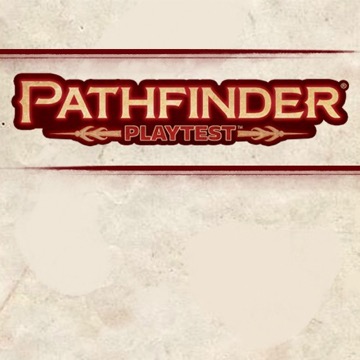Over the past 5 months, we've been thrilled to work with all of you to make the new version of Pathfinder the best game it can be. It hasn't been easy. The Doomsday Dawn adventure turned out to be an excellent way for us to gather data about the forward edge of the game, testing and tuning the numbers that make the game tick, but it was also quite a challenge for many (and I'm not just talking about the deadliness of Part 5).
It was an adventure unlike any we've published before. It was a test, and it’s tricky to make any test fun, but we’re excited to see that many of you had a great time with it, in spite of its challenges. Whether or not your group made it all the way to the end, we want to thank you for running through this gauntlet. The information we gleaned from our forums and the surveys has proven to be invaluable in helping us improve the game, and we have your hard work and dedication to thank for that.
For the past few months, we've been hard at work making refinements to the game, and that work is far from over here in the new year. The rest of the design team and I are going to be a little quiet over the next couple of months as we finalize parts of the game and get it ready to go to the printer. Once that hard work is done, you can expect us to start showing off the final version of the game. We can't wait to show you how it turned out!
So, from all of us here on the design team, and indeed everyone at Paizo, thank you!
Jason Bulmahn
Director of Game Design





